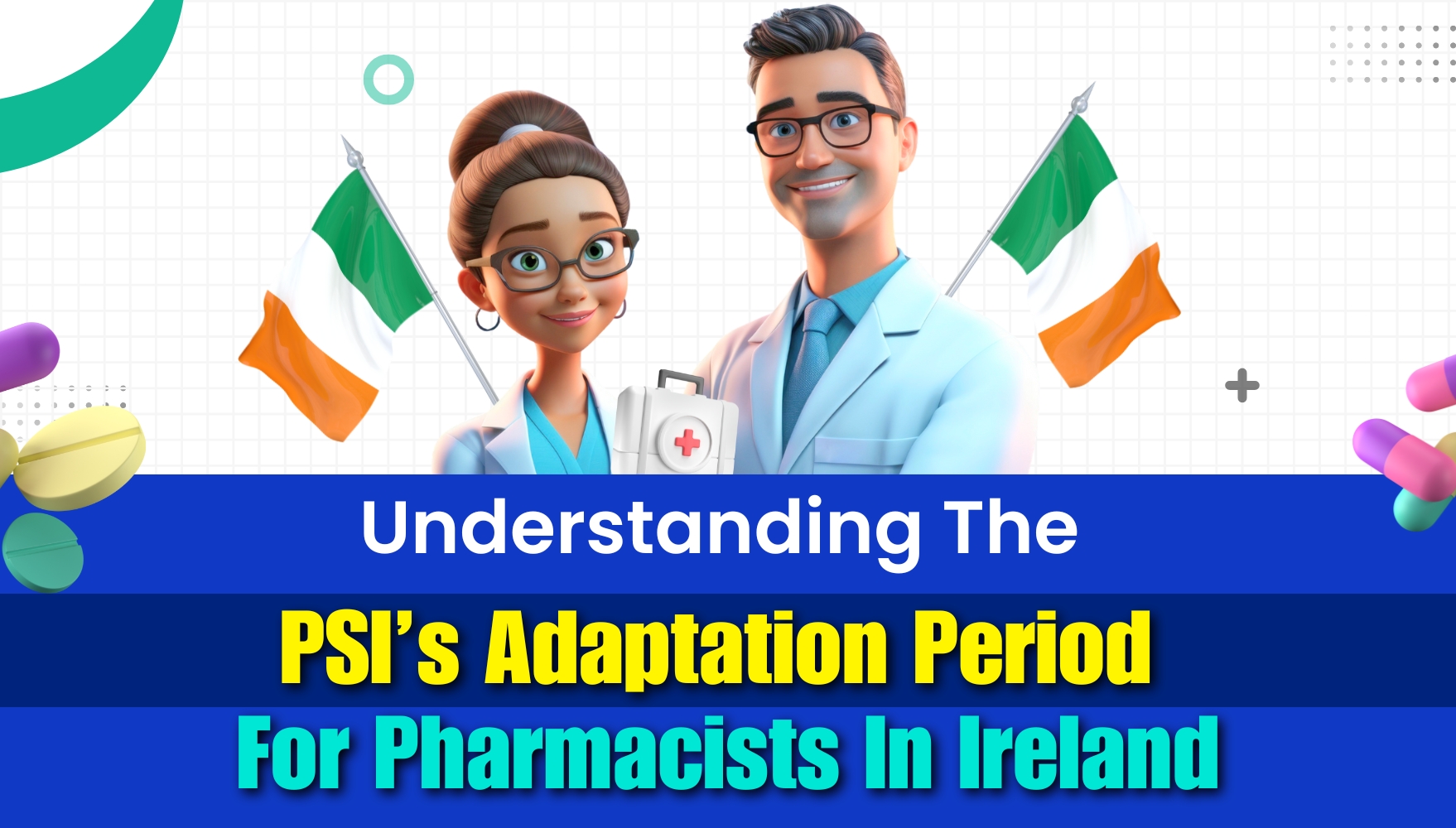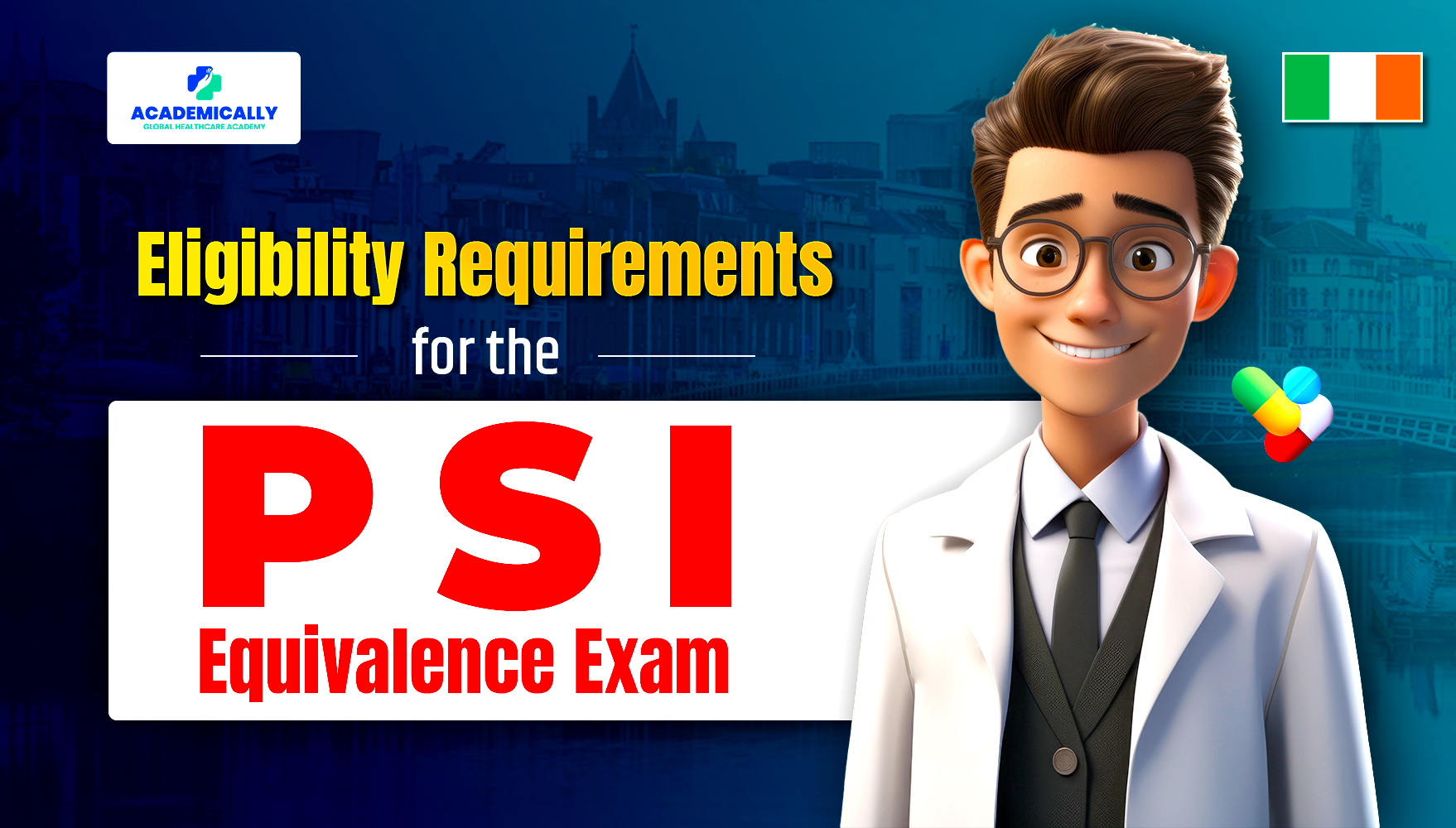What is the Adaptation Period?
The adaptation period is a supervised placement designed to bridge the gap between the qualification standards of non-EU/EEA countries and the expectations of the PSI. Simply put, it is an internship period to familiarise international pharmacists with the practices in Ireland.
It can range from six months to three years, depending on the individual's prior experience and competencies. This period allows TCQR (Third Country Qualification Recognition) or non-EU/EEA applicants to gain practical experience in an Irish pharmacy setting, ensuring they are well-versed in local practices, regulations, and patient care standards.
Role of the Tutor Pharmacist
A crucial component of the adaptation period is the guidance provided by a tutor pharmacist. As a pharmacist undergoing this process, you must understand the importance of this mentorship. Your tutor must:
Be Actively Practising: Your tutor should work at least three full days per week in a community or hospital pharmacy, ensuring they are deeply engaged in the practice environment.
Provide Direct Supervision: They should personally oversee your work at least three days per week, offering continuous supervision and support throughout your placement.
Have Sufficient Experience: Your tutor should have at least three years of practice experience, with a minimum of one year in a relevant setting (hospital or community pharmacy), bringing a wealth of knowledge to guide you.
Maintain Objectivity: There should be no pre-existing connection between you, the training establishment, and your tutor, ensuring the assessment is impartial and fair.
Commit to Sole Supervision: During your adaptation period, you will be the only pupil under your tutor's supervision, allowing for dedicated attention and personalised guidance.
The Assessment Process
Throughout the adaptation period, your tutor will play a key role in your development. They will support and evaluate you against the PSI's Core Competency Framework, which includes competencies in patient care, professional practice, and personal growth. Your tutor will ensure you meet these standards, providing feedback and guidance to help you progress and excel.
Salary During Adaptation Period
Pharmacists in the adaptation period typically earn between €15 and €20 per hour and can work up to 24 hours per week. This pay allows pharmacists to focus entirely on their adaptation period and any additional courses they might be taking without needing additional part-time work. This financial stability supports a more immersive and concentrated learning and professional development experience.
Opportunities During the Adaptation Period
OSCE Performance and Adaptation Period Reduction
An exceptional performance in the Objective Structured Clinical Examination (OSCE) can reduce the adaptation period. This performance-based incentive recognizes the proficiency and readiness of applicants, allowing them to transition more quickly into fully qualified roles.
Read more about Everything About the PSI Equivalence Examination's OSCE for Overseas Pharmacists
Internship Options and Compensation
Many TCQR applicants integrate their adaptation period with further studies, enhancing their knowledge and skills. Additionally, there are opportunities to receive compensation during the internship, easing the financial burden and making the adaptation period more manageable.
Advantages for Indian Pharmacists
Indian PharmD graduates are particularly well-positioned for success in Ireland. The PharmD degree in India is a rigorous six-year program, ensuring graduates have strong subject knowledge and practical experience.
This extensive education aligns well with the requirements of the PSI, resulting in a high success rate for Indian pharmacists in the PSI exams. The comprehensive nature of the Indian PharmD curriculum makes these graduates highly competitive and preferred candidates in the Irish pharmaceutical landscape.
Visa Options
For pharmacists who pass the PSI exams in their home country, obtaining a study visa to complete the adaptation period in Ireland can be a strategic choice. This visa option allows you to integrate your adaptation period with a one-year course, further enhancing your qualifications and growth opportunities in Ireland.
Irish Third-Level Graduate Scheme
The Irish Third-Level Graduate Scheme allows graduates to stay in Ireland for up to two years after completing their studies to seek employment or start a business. This scheme offers a valuable opportunity for pharmacists to complete their adaptation period to establish their careers in Ireland, providing a pathway to long-term employment and residency.
The Professional Registration Examination
TCQR applicants i.e. non-EU/EEA countries must pass a Professional Registration Examination upon completing the adaptation period. This final hurdle assesses their readiness to practise independently in Ireland, ensuring they possess the knowledge and skills required by the PSI.
Parting Thoughts
The adaptation period in PSI is a transformative journey for non-EU/EEA pharmacists aspiring to practise in Ireland. With robust support from dedicated tutor pharmacists and a clear framework for competency assessment, this period ensures that all pharmacists meet the high standards expected by the PSI.
If this phase is taken with dedication and a focus on professional development by enrolling into a proper and effective coaching like PSI Exam Preparation Course, it can lead to a rewarding and fulfilling career in the Irish pharmaceutical landscape.
Please complete this form to learn more about the PSI exam and get one-on-one counselling with our experts.






